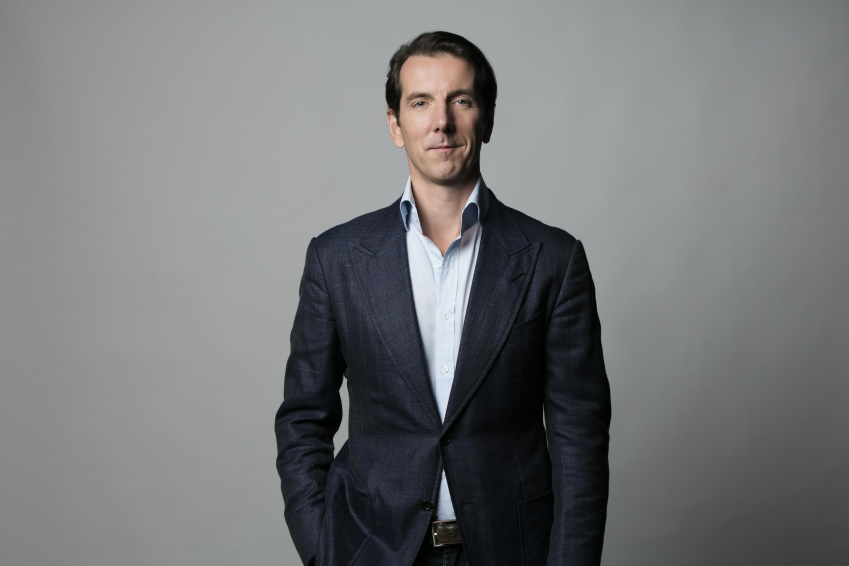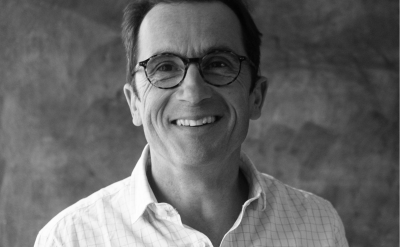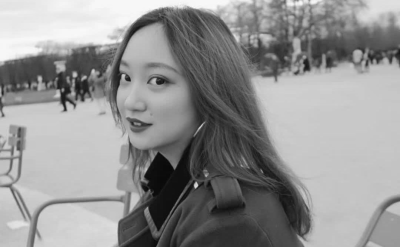News

Damien Dernoncourt, SK 1995, former CEO of John Hardy and founder of the Naga Group, an outstanding entrepreneur in the world of Creative Luxury!
On a short visit to Paris, Damien Dernoncourt agreed to an exclusive interview with SKEMA Business School, the school that “enabled me to hone my skills, build strong friendships and develop my desire for internationalisation,” he shares with us at the start of the interview.
Damien Dernoncourt is the founder and CEO of the Naga Group, an investment holding company that supports and finances creative entrepreneurs and designers in the fields of beauty, accessories and jewellery.
He began his career with an internship in Madrid – SKEMA opened up the doors of the world for him and he would never close them again – then headed for Hong Kong, where he joined a mass-market tool company before founding his first branding, merchandising and packaging company (Asiapack), which he later sold to return to France and complete an MBA programme at INSEAD.
Once back in Hong Kong, he took over the financial leadership of John Hardy, a high-end brand of jewellery, handmade in Bali. He tripled the size of the company in four years before buying it in 2007 with the support of the 3i fund, one year before the brutal global financial crisis which forced him to reduce his headcount and make some drastic strategic choices. John Hardy would reach 1,500 employees and achieve a turnover of $80M with 650 retail outlets around the world, design and creation workshops in Bali and Thailand, a significant commercial presence in New York, and its headquarters in Hong Kong.
Born near Lille, Damien is proud of his northern French roots but finds fulfilment in Hong Kong where he has lived for 23 years.
Damien, tell us about your years at SKEMA? What do you remember most about that time?
I would describe my SKEMA years as intense moments of learning about marketing and sales among other things – with case studies that I devoured – but also simply learning about life.
I have some very fond memories of my time as president of the Sailing Club (with the Spi Dauphine and Croisière EDHEC races) and of the friendships I’ve maintained to this day.
Just last month I hosted a SKEMA friend in Hong Kong.
Those were foundational years during which I went from a homogenous world (Marcq-en-Barœul High School) to a real melting pot thanks to the openmindedness that SKEMA offers.
What I’ve also retained from that period is an intense “work hard, play hard” attitude and three founding values that still drive me: learning, starting new ventures, and giving back.
What is your definition of entrepreneurship after 23 years?
For me, entrepreneurship can be summed up in three criteria:
Never fear public failure. I left everything behind to go to Hong Kong and be laid off after 7 weeks. First hard knock, I couldn’t return to France, I was too proud! I had to bounce back. So I started my first company, which was a total flop.
But I still wanted to start my own business! So I created Asiapack and got my first taste of success. Then came the other adventures, John Hardy, NAGA… In short, out of six companies, two were a total and public fiasco.
Pay to work. For two years, from September 2015 to the capital drive in December 2017, I paid wages and paid for premises to launch Naga, without paying myself. I’m more accustomed to signing the front of cheques than cashing them (laughs).
Be a poor judge of risk. You’ll have more chance of succeeding at P&G or Goldman Sachs than at starting your own business. If you’re a rational type, there is little likelihood that you will become an entrepreneur.
To me, these three criteria are fundamentally linked to the culture of each country, as are losing face or high self-esteem or confidence in one’s skills, which are defined by cultural belonging.
You’ve experienced all of the situations an entrepreneur can face (buyout, expansion, capital raising, selling,…). Which do you prefer?
What I like most of all is starting with an idea and developing it into a concept that will become a company and then a success. This was the case for my second company, Asiapack. An idea that became a great company with over 150 employees and that I have since sold.
With John Hardy, I took over the running of a company that was on the brink of bankruptcy. Two full years of restructuring followed. Then I had the opportunity to buy the company from its founder through an MBO (Management Buy-Out), which enabled me to take control of John Hardy’s capital. There again everything needed doing, but in a different context.
At Naga, we are a dozen partners, all with strong operational, financial and technical skills, who support the growth of creative entrepreneurs.
In the last two years, we have met with over 300 entrepreneurs who quickly, and accidentally, went from the “designer” stage to the “business owner” stage. They dreamed of a product and ended up with a business. They need help with developing a structure and then building their brand in order to survive and thrive.
I like to look back and tell myself that I turned an idea into a business model that became a successful business and team.
How does a business owner reconcile excellence, innovation, diversity and humanism (values that SKEMA holds dear)?
Naga’s motto is: “Who cares wins”. I’m deeply convinced that being generous and attentive in one’s work is good for business. The more you give, the more you receive. I’ll admit that it’s a little harder in France, but in Asia and the United States I’ve really had the opportunity to experiment with this.
Humanism is respect above all. Businesses are not charities, and when we had to let 300 employees go from John Hardy as a matter of survival during the financial crisis, we did it as respectfully as possiblele.
As for excellence, you don’t have a choice; it’s a matter of survival. To achieve it you have to be obsessed with the idea of achieving the best service, the best product, the best organisation, down to the very last detail.
And finally, to me, diversity is about putting fifteen people with different MBTI profiles together in the same room. Sure it’ll take longer to reach a decision, but the agreed upon result will be much more pertinent. I don’t believe in diversity just for the sake of diversity. It should be linked to excellence and humanism, for the benefit of innovation.
In your opinion, what are the main trends that will shape the luxury market in 2018?
The coming years will be a permanent revolution. To attract customers brands will have to be unique, both in terms of design and the experience they offer.
The major luxury brands aren’t, really. They’ve remained very general, whereas consumers are specialising.
I think it’s the end of brands with several billion in turnover and they’ll be making way for hundreds of specialists that will fragment the market. Consumers give only a few seconds of attention to a product on Instagram; you have to target, specialise and understand that the pool of potential customers is shrinking but loyalty is increasing.
On the other hand, there is also a possibility for the real luxury brands to undergo a rebirth with unique and targeted products.
What advice do you have for our future business owners?
I would say that today more than ever, the job you are training for will be obsolete in a few years or even a few months. Jobs, laws and technology are all changing very rapidly, so spend more time learning to think, analyse and really get to know yourself. And as I was saying earlier: never stop learning, starting new ventures, and giving back.
Further reading:
https://www.businessoffashion.com/articles/news-bites/nascent-luxury-group-naga-makes-early-moves
Contact: https://www.linkedin.com/in/damien-dernoncourt-b2146/




